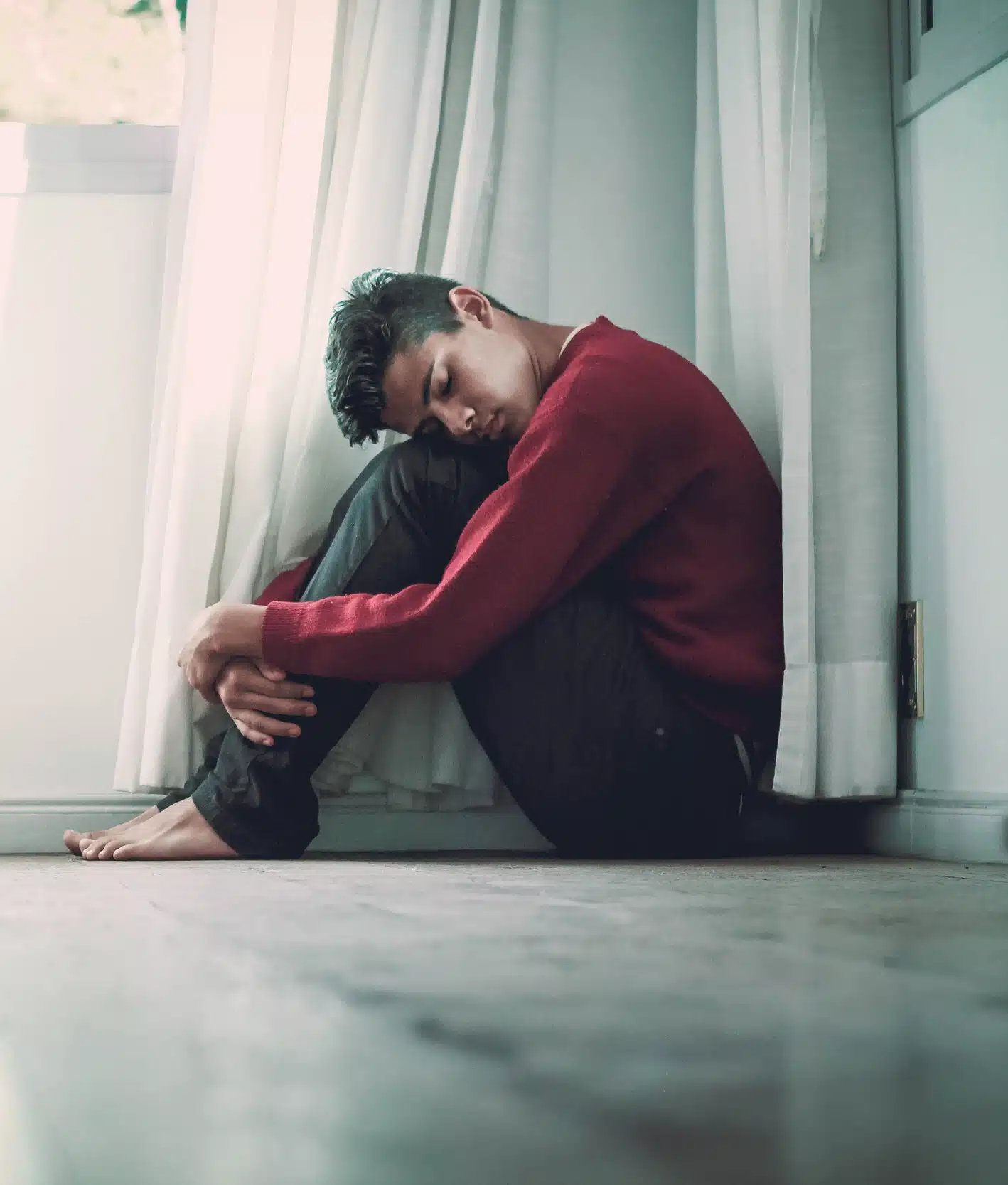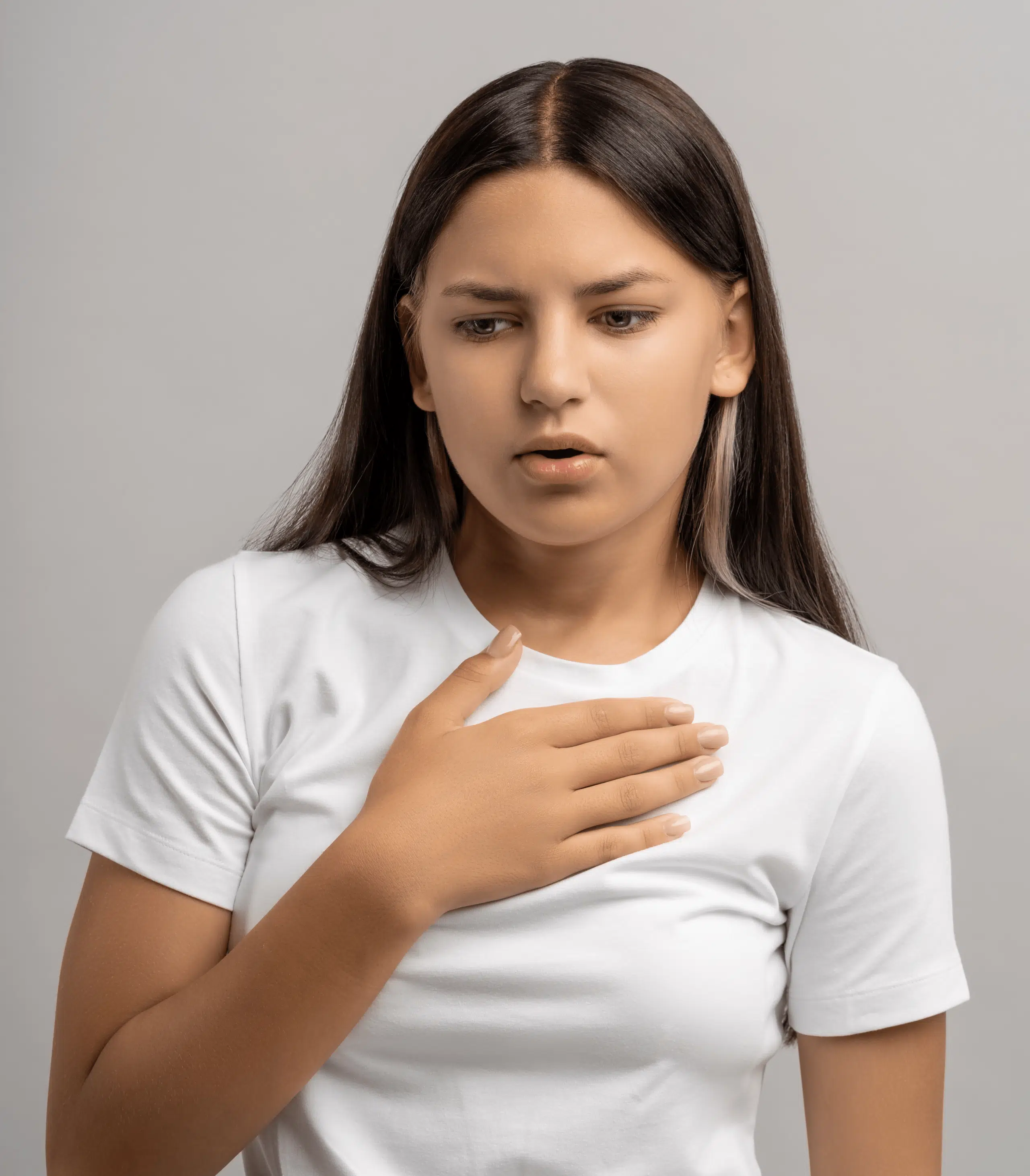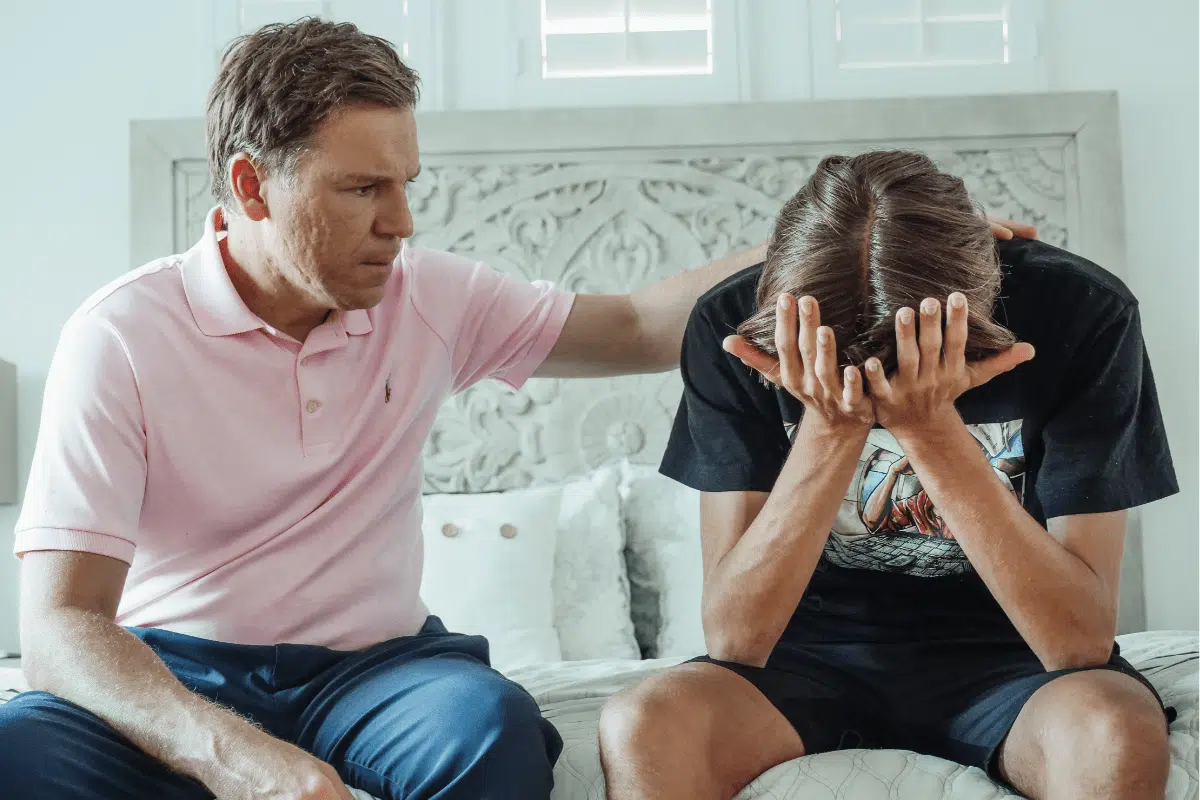Panic Attacks in Teens (A Guide)
If your teen is struggling with panic attacks or overwhelming anxiety, help is available. Contact us today to learn more about our specialized programs and how we can help your child regain confidence and peace of mind.
At Beachside Teen Treatment Center, we understand how overwhelming and frightening panic attacks in teens can be — both for the adolescents experiencing them and for the families who want to help. Panic attacks can feel sudden and unpredictable, leaving teens feeling out of control and unsure of how to manage their symptoms. For many teens, these episodes are connected to underlying mental health conditions, making specialized care essential for lasting relief.
Our safe, welcoming residential environment provides a space where teens can build coping skills, develop emotional resilience, and begin the journey toward lasting wellness.
If your teen is struggling with panic attacks or overwhelming anxiety, help is available. Learn more about our anxiety treatment for teens or call us now at 888-254-0916.
Panic attacks in teens can present in several ways, with symptoms ranging from brief, intense episodes to prolonged periods of heightened anxiety and physical distress. These episodes can be triggered by specific situations, such as social events or academic pressure, or they can occur unexpectedly, with no clear cause. Understanding the different types of panic attacks in teens helps parents, caregivers, and clinicians provide appropriate support and develop effective treatment plans.
Spontaneous Panic Attacks
Some teens experience spontaneous (unexpected) panic attacks, which happen without any clear trigger. These can be especially frightening, as the teen may feel a sudden surge of intense fear, even when they are in a safe environment. These unexpected episodes often contribute to a fear of when the next attack might occur, leading to anticipatory anxiety — constant worry about future panic attacks.
Situational Panic Attacks
Other teens may have situational (expected) panic attacks, which are triggered by specific situations or environments. For example, a teen may feel panic symptoms when giving a presentation at school, attending a social event, or entering a crowded space. These types of panic attacks often tie into underlying phobias or social anxiety and can lead teens to avoid situations where they feel vulnerable, further impacting their quality of life.
Because the severity and frequency of panic attacks in teens can vary so significantly, comprehensive treatment must be personalized to the individual teen.
At Beachside Teen Treatment Center, we carefully assess each adolescent’s symptoms, triggers, and co-occurring conditions to create a tailored treatment plan that addresses both the emotional and physiological aspects of panic disorder.


Causes of Panic Attacks in Teens
Panic attacks in teens can stem from a variety of biological, environmental, and psychological factors. Understanding the root causes can help families and clinicians create effective, personalized treatment plans. Common causes include:
- Genetic Predisposition: Teens with a family history of anxiety disorders, panic disorder, or other mental health conditions may be more vulnerable to developing panic attacks.
- Underlying Mental Health Conditions: Panic attacks often co-occur with anxiety disorders, depression, obsessive-compulsive disorder (OCD), and post-traumatic stress disorder (PTSD).
- Chronic Stress: Ongoing stress from school, extracurricular activities, social pressures, or family conflict can increase anxiety levels, making teens more susceptible to panic attacks.
- Significant Life Changes: Events like moving to a new school, parental divorce, loss of a loved one, or trauma can contribute to the onset of panic attacks.
- Academic and Social Pressures: The pressure to succeed academically, fit in socially, and meet expectations can be overwhelming for many teens, triggering anxiety and panic episodes.
- Physical Health Factors: Certain medical conditions, hormonal changes, poor sleep habits, substance use, or even caffeine consumption can contribute to heightened anxiety and panic symptoms.
- Learned Behavior: Teens who observe family members coping with stress in unhealthy ways may internalize those patterns, increasing the likelihood of developing maladaptive coping mechanisms such as avoidance or catastrophizing, which can lead to panic attacks.
At Beachside Teen Treatment Center, our expert clinical team carefully evaluates each teen’s unique history and circumstances to identify potential causes and tailor treatment strategies that help them build healthy coping skills and overcome panic attacks in teens.
Panic attacks in teens may present with a range of physical and emotional symptoms. Common signs include rapid heartbeat, shortness of breath, trembling, and feelings of impending doom. Additionally, a teen might experience dizziness, chest pain, or a sense of detachment from reality during an episode. Being aware of these symptoms can help parents and caregivers seek timely support and intervention.
How Do I Know My Teen Needs Mental Health Treatment?
If your teen is frequently experiencing episodes of severe anxiety, physical symptoms of panic, or a noticeable decline in their daily functioning, it may be time to consider professional mental health treatment. Early intervention is key, as untreated panic attacks in teens can lead to increased isolation, academic challenges, and further emotional distress. Look for changes in mood, behavior, and academic performance as warning signs that your teen may need additional support.
Diagnosing Panic Disorder in Adolescents
A thorough diagnostic process is essential in determining whether a teen’s episodes are due to panic disorder or another underlying condition. At Beachside Teen Treatment Center, our experienced clinicians use a combination of clinical interviews, standardized assessments, and detailed history taking to accurately diagnose panic disorder in adolescents. This careful evaluation ensures that each treatment plan is specifically tailored to meet the individual needs of the teen.

At Beachside Teen Treatment Center, we take a comprehensive, evidence-based approach to treating panic attacks in teens. Because every adolescent’s experience with panic disorder is unique, we create personalized treatment plans that combine a variety of therapeutic modalities to help teens understand, manage, and reduce their symptoms.
Our multi-faceted approach includes:
- Behavioral Therapy: Evidence-based approaches like Cognitive-Behavioral Therapy (CBT) help teens identify and reframe negative thought patterns that contribute to panic attacks. Behavioral strategies are also used to teach coping skills that reduce the frequency and intensity of episodes.
- Psychodynamic Therapy: This exploratory therapy helps teens uncover and process unconscious thoughts and past experiences that may be contributing to anxiety and panic symptoms.
- Interpersonal Therapy: Building healthy relationships and improving communication skills can significantly reduce stress and social anxiety, both of which can contribute to panic attacks.
- Family Therapy: Family involvement is a cornerstone of care at Beachside Teen. Family therapy helps parents and caregivers understand panic disorder, improve family communication, and learn supportive strategies to help their teen manage symptoms at home.
- Expressive Therapy: Creative outlets like art, music, or writing allow teens to explore and process difficult emotions in non-verbal ways, which can be especially helpful for those who struggle to express their feelings directly.
- Outdoor Therapy: Experiencing nature-based activities helps teens develop mindfulness, reduce stress, and build confidence in a relaxed and supportive outdoor setting.

Why Beachside Teen?
At Beachside Teen Treatment Center, we specialize in helping adolescents aged 12-18 navigate the challenges of panic attacks, anxiety, and co-occurring mental and behavioral health disorders. We understand that seeking treatment for your teen can feel overwhelming, which is why we are committed to providing families with a clear, compassionate path forward — one that supports not just the teen, but the entire family unit.
We offer a full continuum of care designed to meet teens where they are in their recovery journey.
Residential Treatment
Our residential program offers a structured, supportive environment where teens live on-site and receive 24/7 care. This level of care is ideal for teens experiencing severe panic attacks, those struggling to manage their symptoms at home, or those with co-occurring disorders requiring intensive support. Through individual therapy, group sessions, family involvement, and holistic activities, teens develop the skills they need to manage panic attacks in a safe, distraction-free setting.
Partial Hospitalization Program (PHP)
Our PHP program offers a high level of care during the day while allowing teens to return home or to a supportive living environment in the evenings. PHP is an effective option for teens who need structured daily therapy and skill-building, but who are able to practice what they learn in real-life situations outside of treatment hours. PHP provides a bridge between residential care and outpatient treatment.
Intensive Outpatient Program (IOP)
Our IOP program offers flexible, part-time treatment, allowing teens to attend school and maintain family and social commitments while still receiving structured therapy and support several days a week. IOP is ideal for teens who are ready for more independence, but who still need ongoing therapeutic support to manage panic attacks and related challenges.
At Beachside Teen, we believe that family involvement is critical to a teen’s long-term success. From the moment your teen enters our care, we partner with you to ensure open communication, ongoing education, and collaborative treatment planning.
Parents can expect:
- Regular updates on their teen’s progress, including family therapy sessions to help strengthen communication and support healing at home.
- A focus on holistic wellness, including evidence-based therapies, creative outlets, outdoor activities, and coping skill development.
- Expert guidance from licensed clinicians, psychiatrists, and behavioral health specialists who are experienced in working with adolescents and panic disorders.
- A nurturing, safe environment where your teen is encouraged to explore their emotions, build confidence, and develop tools to manage anxiety and panic attacks in healthy ways.
- Support in planning for life after treatment, including ongoing recovery plans, relapse prevention strategies, and referrals to trusted providers for continued care, if needed.
Find Effective Help For Your Teen Today
If you are concerned about panic attacks in teens or believe your child may be experiencing these symptoms, don’t wait to seek help. Contact Beachside Teen Treatment Center today to schedule a consultation and begin the path toward healing. Let us help your teen reclaim their life with the professional support they deserve.



